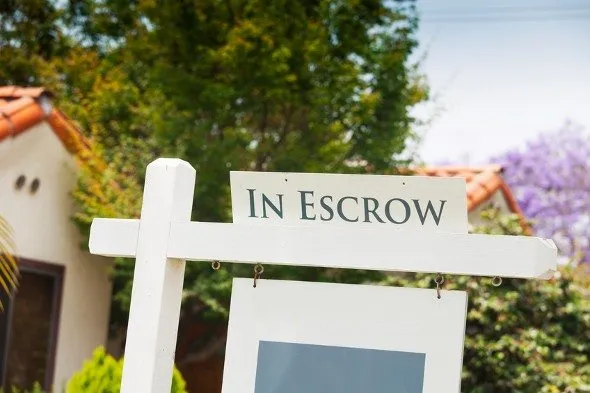When buying a new home, the question of whether you should escrow property taxes and insurance inevitably comes into play. Escrow accounts help homeowners set money aside each month to cover insurance premiums and property taxes. When the bills for these come in each year, the mortgage lender uses money in the escrow account to cover the payments. It helps you avoid having to make one extra-large payment each year.
A financial advisor can help you manage your money so you can cover all costs related to buying a home.
What Is an Escrow?
An escrow account (or impound account), is a special account that holds the money owed for expenses like mortgage insurance premiums and property taxes. When you buy a home, your lender might collect a certain amount of money to deposit into your escrow account during the closing process.
The actual dollar amount that goes into an escrow account is based on the monthly average for insurance premiums and taxes. You may have to pay up to six months’ worth of property taxes and maybe even a year’s worth of insurance up front.
Escrow accounts are set up to collect property tax and homeowners insurance payments each month. When your insurance or property tax bill comes due, the lender uses the escrow funds to pay them. That way, you don’t have to keep up with payment deadlines. You’re also not forced to shell out hundreds or thousands of dollars all at once to cover your taxes or keep your insurance current.
How Escrow Accounts Benefit Homeowners
Convenience is arguably the best thing about using an escrow account. Having just one single payment to worry about each month means you don’t have to write multiple checks or chase down receipts for payments. If you live in a community that has a homeowner’s association, you can add these fees into the escrow account to further streamline your monthly budget.
Lenders sometimes offer buyers an incentive for setting up escrow accounts, such as lower mortgage interest rates. In the long run, that can make a significant difference in the cost of buying a home.
How Do I Set Up an Escrow Account?

Most mortgage lenders allow borrowers to set up escrow accounts to cover insurance premiums and property taxes. Each lender sets its own rules around such accounts. However, mortgage lenders must send you annual statements of your escrow account. These provide key details, such as the money held in the account and any payments made.
Money required to be held in the account may change as insurance premiums and property tax assessments fluctuate. In case of account shortages, the lender usually covers the difference before increasing your interest rate to account for the difference.
When setting up an escrow account, your lender typically calculates the estimated annual cost of your property taxes and homeowners insurance. They then divide this amount by 12 to determine the monthly payment. This escrow portion is then added to your regular mortgage principal and interest payment. At closing, you may also need to prepay a few months of escrow deposits to ensure the account has enough funds to cover upcoming bills.
Some lenders may offer the option to waive escrow under certain conditions, such as making a larger down payment. However, they may charge a fee or require higher interest rates in exchange. Once the account is active, it’s important to regularly review your escrow statements to confirm the payments are accurate and the balance is sufficient, especially if tax rates or insurance premiums change.
Reasons You May Want to Skip Escrow
If you’re already getting a good deal on your mortgage rate, forgoing escrow may be a good idea. While some lenders are legally obligated to pay homeowners interest on the money in their escrow accounts, that’s not always the case. By investing the money you’d normally put in escrow into a CD, money market account or even a regular savings account instead, you could earn a bit of a return on your cash in the process.
Avoiding escrow could also be a good move if you want to ensure that your mortgage payments are the same from month to month. If you have an escrow account and your property tax bill or your insurance premiums suddenly jump, you might not be aware of the change until the end of the year.
In addition to earning interest and maintaining a steady mortgage payment, skipping escrow gives you more direct control over your money. Instead of relying on the lender to pay your tax and insurance bills, you’re responsible for tracking due dates and making the payments yourself. This can be appealing if you want to manage your own budget. Or if you’re confident you’ll save the necessary funds throughout the year.
You might also want to skip escrow if you live in an area where taxes and insurance costs fluctuate often. Handling payments on your own allows you to shop around for new insurance providers or appeal property tax assessments without having those changes automatically reflected in your escrow account. However, it’s important to be disciplined with your savings to avoid missing large payments when they come due.
How to Know When Escrow Is Required
Generally, an escrow account is a prerequisite if you’re not putting at least 20% down on a home. Unless you’re bringing a sizable chunk of cash to the closing table, escrow may be unavoidable. FHA loans, for example, always require buyers to set up escrow accounts.
Fortunately, you may be able to get rid of your escrow account down the line. Just be prepared to show proof that you have made on-time payments each month and built enough equity in your home. Otherwise, the lender may not agree to let you off the escrow hook.
In addition to FHA loans, other types of government-backed loans — like USDA and VA loans — also typically require escrow accounts as part of the mortgage agreement. Even with conventional loans, some lenders may impose escrow requirements if they view the borrower or the property as higher risk. Lenders want to ensure that taxes and insurance premiums are paid on time, reducing the chance of liens or lapses in coverage that could affect the home’s value.
If you’re hoping to cancel your escrow account in the future, be aware that lenders often set conditions you’ll need to meet. For example, having at least 20% equity in the home or maintaining a clean payment history for a certain number of years. Some lenders may also charge a fee to remove the escrow requirement. It’s important to check your loan agreement and discuss your options with the lender if managing taxes and insurance on your own is a priority for you.
Bottom Line

An escrow account is a special account for homeowners to put aside money for things like mortgage insurance premiums and tax payments. Getting an escrow account can make things simpler for homeowners by letting them write just one check a month. If you’re interested in setting up an escrow account, you can likely do so with your mortgage lender. You can also work with a financial advisor to simplify the homebuying process and help you prepare to meet the requirements when you find a new home.
Tips for Home Buyers
- The home buying process can be a daunting task, and costs are of the utmost importance. A financial advisor can help. Finding a financial advisor doesn’t have to be hard. SmartAsset’s free tool matches you with vetted financial advisors who serve your area. You can have a free introductory call with your advisor matches to decide which one you feel is right for you. If you’re ready to find an advisor who can help you achieve your financial goals, get started now.
- Use SmartAsset’s free mortgage comparison tool to compare mortgage rates from top lenders and find the one that best suits your needs.
- If you can’t secure a favorable interest rate on a conventional mortgage, you may want to consider a USDA loan or look into first-time homebuyer programs. These tend to provide reasonable rates for people with less than favorable credit scores.
Photo credit: ©iStock.com/stellalevi, ©iStock.com/Predrag Vuckovic, ©iStock.com/kokouu
